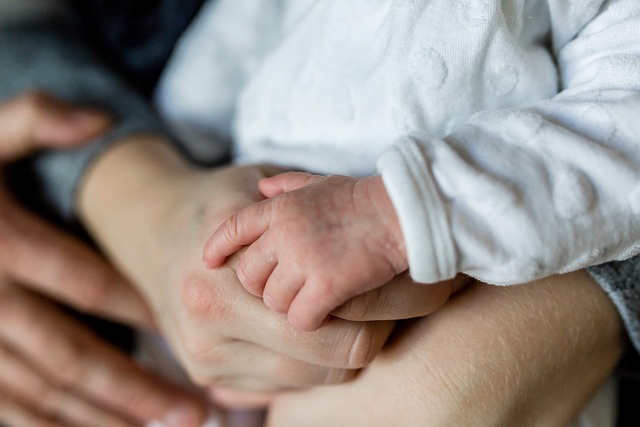Families facing DHS child welfare cases in Multnomah County benefit from understanding Child Welfare Legal Services. These services, provided by Multnomah County Child Advocacy and Oregon Family Law, balance parental rights protection with child safety. Knowledgeable advocates guide parents through procedures, ensuring active engagement and stronger family connections. Recognizing potential neglect or abuse signs is crucial; qualified attorneys specializing in child protective services law offer vital guidance and resolution strategies. Multnomah County advocacy groups support families throughout the case, fostering positive outcomes by promoting open communication and informed decision-making.
Helping families navigate complex child welfare cases is a crucial aspect of ensuring every child’s safety and well-being. This guide offers an in-depth look at essential resources and protections available to Oregon parents facing child protective services (CPS) or DHS child welfare cases. From understanding child welfare legal services and parental rights protection to navigating Multnomah County’s child advocacy system, these insights empower families to actively participate in the process. By familiarizing themselves with the laws and available support, parents can make informed decisions during what can be a challenging time.
- Understanding Child Welfare Legal Services: A Guide for Families
- Parental Rights Protection: Ensuring Every Parent's Voice is Heard
- Navigating DHS Child Welfare Cases: What Families Need to Know
- Multnomah County Child Advocacy: Supporting Families Through Complex Systems and Laws
Understanding Child Welfare Legal Services: A Guide for Families

Understanding Child Welfare Legal Services is a crucial step for families facing DHS child welfare cases. These services, offered through Multnomah County Child Advocacy and Oregon Family Law, are designed to protect parental rights while ensuring the safety and well-being of children involved in protective proceedings. Child Protective Services (CPS) law outlines the legal framework for intervention when a child is at risk of abuse or neglect.
Navigating this complex landscape can be daunting, but knowledgeable advocates play a vital role. They guide families through each stage, explaining their rights and options. This support ensures parents are actively involved in decisions affecting their children, fostering a stronger connection and promoting the best possible outcomes for everyone involved.
Parental Rights Protection: Ensuring Every Parent's Voice is Heard

In every DHS child welfare case, it’s paramount to safeguard and uphold the parental rights protection of involved parents. This involves ensuring their voices are heard, concerns addressed, and interests protected throughout the legal process. Child welfare agencies in Multnomah County and across Oregon play a critical role by providing dedicated child protective services law professionals who facilitate open communication, educate parents about their rights, and guide them through complex procedures.
By offering comprehensive child welfare legal services, these professionals empower families to navigate their cases effectively. They help parents understand the legal jargon, clarify their options, and advocate for the best interests of their children while preserving their parental rights in accordance with Oregon family law. This collaborative approach fosters trust, strengthens family connections, and ultimately contributes to positive outcomes for both parents and children involved in Multnomah County child advocacy efforts.
Navigating DHS Child Welfare Cases: What Families Need to Know

Navigating a child welfare case involving the Department of Human Services (DHS) can be daunting for families. It’s essential to understand that in Oregon, particularly in Multnomah County, various legal services and support systems are available to help protect parental rights while ensuring the safety and well-being of children. The first step is recognizing when a child welfare intervention might be necessary; signs may include neglect, abuse, or any situation where a child’s immediate safety is at risk. Once triggered, families should seek guidance from qualified attorneys specializing in child protective services law and Oregon family law.
These legal professionals can help explain the process, ensure parental rights are protected, and offer strategies to resolve issues effectively. Multnomah County child advocacy groups also play a crucial role by providing support, resources, and information throughout the case. Families should actively participate in case planning meetings, make informed decisions, and stay engaged with their child’s well-being. By staying informed, making proactive choices, and accessing available legal services, families can better navigate DHS child welfare cases and ultimately foster positive outcomes for both parents and children involved.
Multnomah County Child Advocacy: Supporting Families Through Complex Systems and Laws

In the intricate landscape of child welfare, where laws and systems can often feel like a labyrinthine tapestry, Multnomah County Child Advocacy emerges as a beacon of support for families navigating challenging situations. This dedicated organization in Oregon offers comprehensive legal services tailored to protect parental rights while ensuring the safety and well-being of children involved in DHS child welfare cases. Their expertise lies in guiding parents through the complex web of regulations, empowering them to make informed decisions during these trying times.
Multnomah County Child Advocacy’s mission is to provide a safe haven for families, offering both legal advocacy and emotional support. They help demystify the often-intimidating process of Oregon family law, especially when it comes to child protective services law. By educating parents on their rights and obligations, they foster an environment where families can actively participate in decisions affecting their children’s futures. This proactive approach not only strengthens the bond between parents and their kids but also ensures that every step taken is in the best interest of the entire family.






